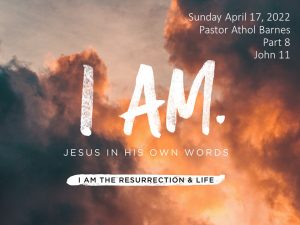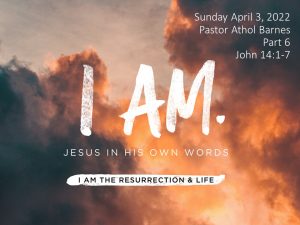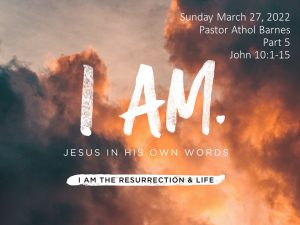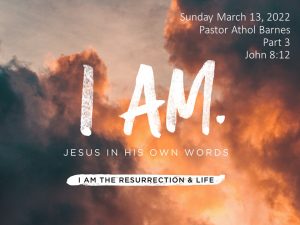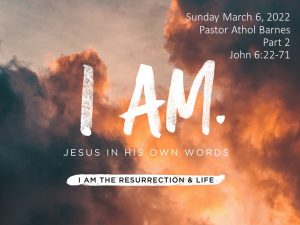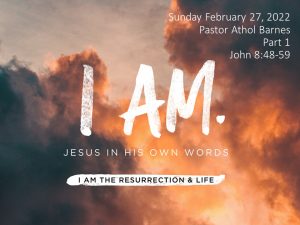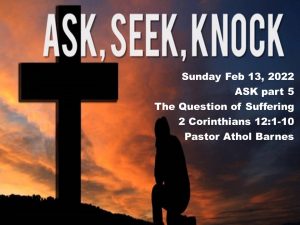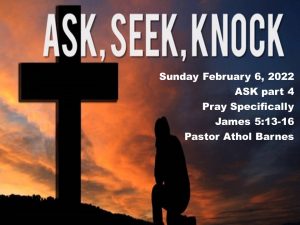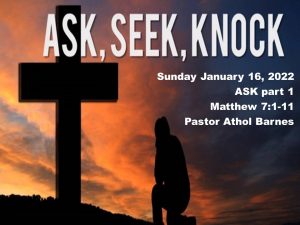
Jonathan Haidt recently wrote, “Artificial intelligence is close to enabling the limitless spread of highly believable disinformation.”
We live in a world where truth is almost unbelievable because of the saturation of lies and false narratives that are being promoted globally. Objective truth has been denied and sadly many Christians do not turn to the Word of God for truth and discernment. We should not be surprised by the ever-increasing volume of lies and misinformation in a world where Satan has his domain (John 8:44)
In John 14:6, Jesus said, “I am the Way, the Truth and the Life”. Jesus embodies truth. He is truth. John the Beloved disciple of Jesus wrote three short letters to the church in and around Ephesus. The primary purpose of the letters was to counter false teaching, causing confusion in the early church. The primary lie that was being promoted in the early church in Asia Minor was that Jesus was not God.
The fact the Jesus is the creator God himself is the foundational truth of the church. If that is not true, then his death and resurrection have no redemptive purpose.
Looking at the first four verses of 1 John, the author focuses our gaze on the Word of Life, the Son of God. In these verses we will see three aspects of how we relate to the truth that is Jesus. It is essential that we get the correct understanding of this man who is fully God and fully man at the same time.
1: A passion to know Jesus.
John wants us to know Jesus, the Word of Life who came down from heaven, and by his life, death, and resurrection provided a way for us to have fellowship with God the Father, now and for eternity. In the first 2 verses, John highlights two key truths about the uniqueness of Jesus.
A: He Is Divine
He begins with, “that which was from the beginning.” And in verse 2, “the eternal life that was with the Father…”
Jesus has always eternally existed with the Father as God. There has never been a time when the Son did not exist (John 8:58 and John 10:30). There never was a time when the Son was not fully God.
B: He Is Human
In these same verses John makes a clear case for the humanity of Jesus. He speaks as an eyewitness of the life and ministry of Jesus. He speaks about hearing Jesus, seeing Jesus and touching Jesus. He was a real person.
At the time, there was a false teaching that John was countering, an early form of what is called “Gnosticism,” a term based on the Greek word that means knowledge. They believed that all matter was evil and that salvation is by a mystical spiritual knowledge. Some of the Gnostics taught that Jesus only appeared to be human.
It is essential that we believe that, Jesus really became a human being in the flesh (John 1:14).
John Piper wrote, “When God becomes a man, man ceases to be the measure of all things, and this man becomes the measure of all things. This is simply intolerable to the rebellious heart of men and women. The incarnation is a violation of the bill of human rights written by Adam and Eve in the Garden of Eden. It is totalitarian. It’s authoritarian! Imperialism! Despotism! Usurpation! Absolutism! Who does he think he is! GOD!”
2: Once we know Jesus, we will have a passion to Share Jesus.
“That which we have seen and heard we proclaim also to you…” 1 John 1:3a.
Jesus chose twelve men, and they were so impacted by following him that the world was turned upside down (Acts 17:6). They were ordinary uneducated men who were compelled to take this Gospel message to the entire world. What they had experienced in Jesus they wanted others to experience too.
Everyone in the Bible who encountered Jesus, was compelled to share Jesus with others. Many believers today excuse themselves from sharing the Gospel because they feel that they don’t have the gift of evangelism. But it is not about a spiritual gift, it is about encountering Jesus. Simply put, encountering Jesus leads to speaking about Jesus.
If you are not sharing Jesus, you are not encountering Jesus. Which begs the question, do you know Jesus?
And what is the purpose of this sharing? Verse 3 continues, “…so that you too may have fellowship with us; and indeed our fellowship is with the Father and with his Son Jesus Christ.”
This sharing is an invitation to relationship with Jesus, and an added blessing is the family that we get introduced to as a result. The invitation is open to everyone.
This fellowship that we enjoy as the body of Christ is far deeper than a gathering of like-minded people, or a social club or a fraternity. We are invited into a family that transcends all earthly barriers. Christianity is all about relationships being restored, firstly our relationship with God, and then we get millions of brothers and sisters all around the world.
3: We will enjoy Jesus.
“And we are writing these things so that our joy may be complete” 1 John 1:4. John wrote this letter so that we might know the fulness of Joy. Jesus also said this in John 15:11.
That fullness of joy is ours through our friendship with one another and with God, who is now our Father. And all of it made possible by the gospel of Jesus Christ, God’s Son.
As we walk this earth daily confronted by sin and pain, how can we experience joy?
The real issue is the difference between Joy and happiness. Happiness is short lived and dependent on external factors. Joy is peace based on security. We have Joy because we are in Christ and we have a certainty of his love for us, displayed on the cross and promised in his return.
To enjoy Jesus, we must receive him as he is; the eternal son of God, crucified, and raised back to life for our sins and coming back again. And as we submit to him as Lord, we will fully enjoy him.
Do you know this Jesus?
Are you sharing this Jesus?
Are you enjoying this Jesus?


